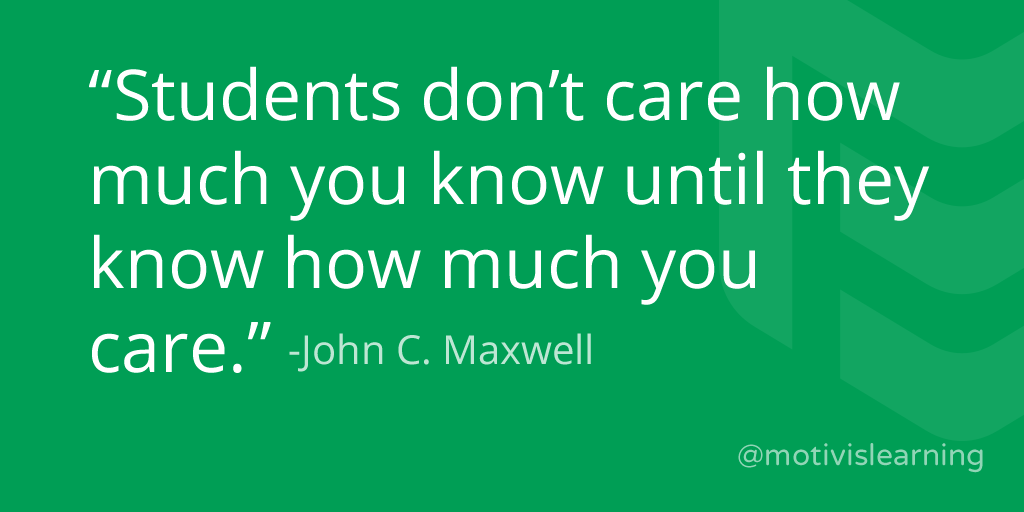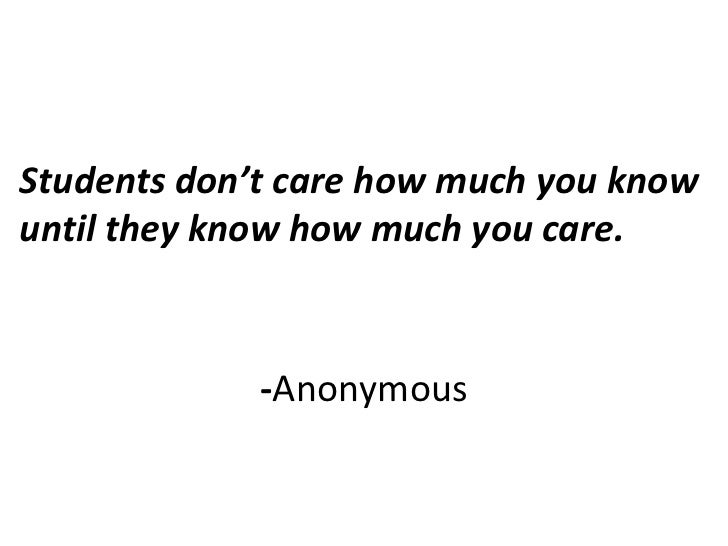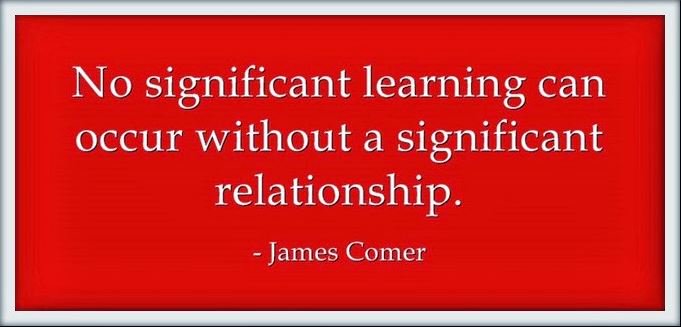09.17.18Connecting Through Content
You’ve probably seen some version of this aphorism if you work in education:
They Don’t Care How Much You Know Until They Know How Much You Care
It’s s often given a sort of hallowed stature-it’s a truism & should shape our every decision in the classroom.
Maybe that’s why it’s attributed to Teddy Roosevelt

And John C. Maxwell

And Zig Ziglar

Also, this guy

And ‘anonymous’ of course.

And as with any good aphorism it’s undergone some metamorphosis in the hands of admirers

So let me say that I feel strongly about relationships- just as I feel strongly about learning. I think both matter immensely.
And because they are important I think it’s important to think carefully about them, and therefore to realize that this oft-repeated truism is simply not true. There is some truth to it, but the reality is far more complex.
Let’s start by asking about the converse: Can you learn from someone without a significant relationship with them, without knowing they care? Of course you can. You have and in fact you must be able to. Ever have a college professor who did not know your name? Did you also learn from them? Of course. Even with the teacher you loved and connected with most in your life there was a period before you knew much about each other where you still learned from him or her.
In fact one of the primary reasons you came to love or admire or connect with that teacher was probably what he or she did in those days before there was any connection. His or her ability to help you learn and understand and maybe achieve a goal was one of the things that built that relationship-at least if the relationship was substantive rather than superficial. You knew they cared because they caused you to learn–they cared, true, but they cared first and foremost about your learning. You connected through content. In some cases that led to a deeper connection.
If you didn’t learn much, if they didn’t teach you well, you may have liked them in a sense but your relationship was incomplete. Competence as a teacher is a driver of enduring connections with students. A teacher who would place more value on showing caring without ensuring learning would have done you a disservice. It would have been an act of egotism. And you would have come to resent that.
I’ve thinking about all of this since my colleague Darryl Williams said something related in a meeting. We were watching video of a teacher and discussing her relationships. She was a master teacher. The students hung on her every word. They respected her. And to the degree that they ‘knew she cared’ they knew what she cared about most was whether they learned. Watching her, Darryl said “I’m just not sure it’s possible to have a strong relationship with a student unless you teach them well.”
That made sense to me. I had just been talking to a group of students who were bemoaning their experience in a class where the teacher seemed too eager to show she cared. “She’s always telling us about her life and asking us about our lives. And there’s a corner where we can go play games and relax if we are stressed. But we’re not stressed. We’re bored. We never learn anything.”
“And besides I don’t want to talk about my life with her,” said one. “I have people in my life for that already.” The teacher wanted to connect with her students so badly that she neglected to do the one thing that would most cause them to connect with her–teach them. Or perhaps she wanted so badly to be liked that she failed to teach them. They felt that as a failure of respect.
So I’m not saying we should not invest time and effort in relationships. Far from it. But we should be honest about how relationships develop and remember that they serve a larger purpose–the student’s purpose not our own. We are not their parent. We are not their older sibling. We are not their savior. We are their teacher. In some cases they will want to be close to us and have a stronger connection. In some cases they won’t. In all cases it will be our job to teach.
In sum:
1) Building relationships with people we teach (or learn from) is an iterative process. The one causes the other which causes the one which causes the other. Trying to build relationships without teaching is a dead end street.
2) There are a wide variety of viable and productive classroom relationships. Not every student WANTS to be close to every teacher but every student needs to learn from their teacher and know that they care about his or her achievement.
3) If we use the imperative of relationship building as a reason not to spend our time focused on the effectiveness of our teaching we are less likely to succeed at either teaching or building meaningful relationships with students.
4) Making students feel safe successful and known in the classroom is a good proxy for what ultimately drives positive relationships.
